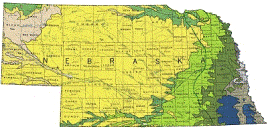United States Geological Survey

United States Geological Survey: Staff Publications
Document Type
Article
Date of this Version
2016
Citation
U.S. Geological Survey Circular 1422, 255 p.
Abstract
The North American Breeding Bird Survey (BBS) is a roadside survey of the breeding birds of North America. The BBS provides data from the contiguous United States, Alaska, southern and central Canada, and northern Mexico. Begun in 1966 by Chandler (Chan) S. Robbins at the U.S. Geological Survey (USGS) Patuxent Wildlife Research Center (Patuxent), and now jointly managed by Patuxent, the Canadian Wildlife Service, and the Mexican Commission for the Knowledge and Use of Biodiversity, the survey is conducted primarily in June along more than 5,000 roadside survey routes that are surveyed once each year. Volunteer observers drive the 39.4-kilometer (24.5-mile [mi]) routes, stopping approximately every 800 meters (m) (0.5 mi) to conduct fifty 3-minute point counts during which they record all the birds heard or seen within a 400-m (0.25-mi) radius of the counting location. Observers submit their data for each stop along their routes to the BBS offices in their respective countries, after which the information is made available to the public.
Included in
Geology Commons, Oceanography and Atmospheric Sciences and Meteorology Commons, Other Earth Sciences Commons, Other Environmental Sciences Commons


Comments
Published in Perry, M.C., ed.
https://doi.org/10.3133/cir1422